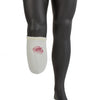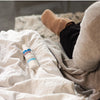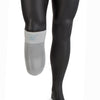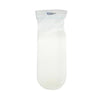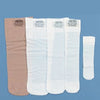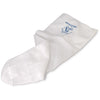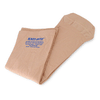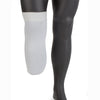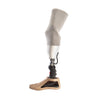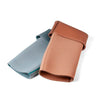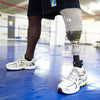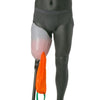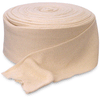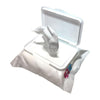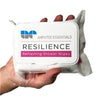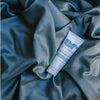Alcohol & Skin Care: The Facts
Alcohol & Skin Care: The Facts
If you're comparing products and you have sensitive skin, the usual advice is to look for a cleanser or moisturizer that's alcohol free. But a truly alcohol free product may be hard to find if you're checking what's listed on the ingredients label. Out of 20 skin care products, at least 12 will contain some form of alcohol. Are they really all bad?
What's the worst it can do?
You apply, and the product evaporates in minutes, making it seem like the effects are minimal. But you're actually doing a great disservice to your skin. Alcohol harms the skin's naturally protective barrier, makes oily skin and redness worse, and frequently causes dryness. And the damaging effects of alcohol begin immediately.
A 2003 study found that regular exposure to alcohol-based products turned cleansing into a damaging ritual. Alcohol-treated skin was no longer able to keep water and cleansers from penetrating, which further eroded the skin's barrier. Not only do products containing Ethanol or SD alcohol break down your skin's health and resilience over time, exposure to alcohol actually causes your skin cells to self-destruct.
If alcohol is so bad, why is it used so frequently?
Despite its bad reputation, alcohol is actually a useful skin care ingredient. Cosmetic chemists use it to improve product stability, reduce the time it takes for a product to dry, to help adjust how skin feels to the touch, and to introduce oil-based ingredients (fragrances, salicylic acid, etc.) into water. It's also added as a moisturizer to body creams and lotions.
But though skin care products are often loaded with alcohol, not all alcohols are created equal. Common product formulas containing ethanol (or SD alcohol, isopropyl, methanol, or ethyl alcohol) can cause dryness, but other kinds of alcohols are not only non-drying, they can benefit the skin.
Typically, these "fatty alcohols" are used as emollients and thickeners in skin-care products. They're the opposite of ethanol. They're not irritating and, in fact, can be beneficial for dry skin. Fatty alcohols have as much in common with damaging alcohols as a whiskey shot has with olive oil.
Check the label.
If a product is labeled “alcohol-free” it means it was made without the more simplistic forms of alcohol, like ethanol. If the ingredient label lists other alcohols on it, they’re the moisturizing type. How can you tell the difference?
Good alcohols commonly found on skincare ingredient labels include cetyl alcohol, cetearyl alcohol, stearyl alcohol, behenyl alcohol, arachidyl alcohol and myristyl alcohol.
Ethanol shows up on ingredient labels as: Alcohol Denat., SD Alcohol 3-A, SD Alcohol 30, SD Alcohol 39, SD Alcohol 39-B, SD Alcohol 39-C, SD Alcohol 40, SD Alcohol 40-B, SD Alcohol 40-C or just plain alcohol.
Should I use it to clean wounds?
If you have an abrasion or irritation on your limb, it's best not to clean it with alcohol. These days, most medical professionals just use alcohol to disinfect, like when they swab your skin with it before giving you a shot. Wounds are typically cleaned with either sterile water, saline solution, or iodine. Alcohol is ineffective at sterilizing broken skin, and using rubbing alcohol to clean a wound can actually harm the tissue and prolong the healing process and your discomfort.
Just the Facts
Your skin needs to be strong and healthy in order to withstand the effects of wearing a prosthesis every day. The truth is that alcohol-based products can work against that goal. Alcohol immediately harms the skin and starts a chain reaction of unnecessary damage that continues long after it has evaporated. With hundreds of skin-friendly alternatives available, why bother?
Related Articles:
- Do I have a skin disorder?
- How-to create a prosthetic skin care routine?
- How do amputees deal with friction?
- How Does Your Skin Work?
- Ingredients To Avoid
- Know Your Skin Type
- Parabens: Are they really a problem?
- The DOs and DON'Ts of Skin Care
- Why are fragrance free products best?
- Why do some skincare products cause a negative reaction?
- Your Residual Limb Deserves Some TLC
- 15 Skin Problems Amputees Experience & How to Solve Them
- Common Skin Issues for Above-Knee Amputees































